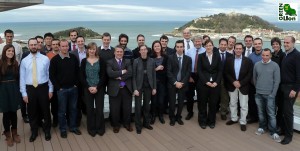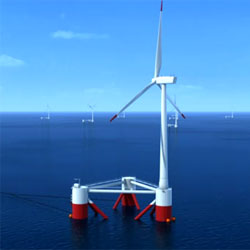 Society‟s current individual mobility behaviour is creating a plethora of looming problems, such as fossil carbon intensity and the concomitant consequences regarding fossil resource supply or the emissions of pollutants such as nitrogen and sulphur oxides (NOx, SO2) and particulate matter. While pollutant problems can be addressed by catalytic converters and filters, expectations run high that the greenhouse gas and resource problems can be addressed by substituting internal combustion engine (ICE) cars with battery powered electric cars (BEV). Most of the major car manufacturers have announced BEVs as part of their product lines in the immediate future.
Society‟s current individual mobility behaviour is creating a plethora of looming problems, such as fossil carbon intensity and the concomitant consequences regarding fossil resource supply or the emissions of pollutants such as nitrogen and sulphur oxides (NOx, SO2) and particulate matter. While pollutant problems can be addressed by catalytic converters and filters, expectations run high that the greenhouse gas and resource problems can be addressed by substituting internal combustion engine (ICE) cars with battery powered electric cars (BEV). Most of the major car manufacturers have announced BEVs as part of their product lines in the immediate future.
Lithium ion batteries are indicated as the option for the next generation of hybrid and electric vehicles (HEV, EV). The wide deployment of lithium ion batteries in the automotive industry would have tremendous consequences on the battery-market and it would further strengthen the central role of these systems in the field of energy storage. For that, considerable efforts are now focused on the development and realization of lithium ion batteries able to fulfill the requirement necessary for the application in HEV and EV. When the present lithium ion technology is considered, the safety and cost of batteries appear as the main drawbacks holding the introduction of this technology. Continuer la lecture de « Kick off meeting of Greenlion project in San Sebastian »

![etv_logo[1]](https://www.greenmaterials.fr/wp-content/uploads/2011/12/etv_logo1.jpg)


![Ccir_aquitaine[1]](https://www.greenmaterials.fr/wp-content/uploads/2011/12/Ccir_aquitaine1.png)


